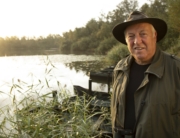Adults who were in close contact with nature during their childhood could have a better mental health than those who had less contact, according to a recently published study by the Barcelona Institute for Global Health (ISGlobal).The study, published in the International Journal of Environment Research and Public Health, was performed within the framework of the PHENOTYPE project with data from almost 3,600 adults from Barcelona (Spain), Doetinchem (Netherlands), Kaunas (Lithuania) and Stoke-on-Trent (United Kingdom).
The results indicates that grown ups who were less exposed to natural spaces during their childhood had lower scores in mental health tests, compared to those with higher exposure.
“Many children in Europe lead an indoors lifestyle, so it would be desirable to make natural outdoor environments available, attractive and safe for them to play in,” says Mark Nieuwenhuijsen, director of ISGlobal’s Urban Planning, Environment and Health Initiative. In most countries, activities in nature are not a regular part of the school’s curriculum. Nieuwenhuijsen makes a call on policymakers to improve availability of natural spaces for children and green school yards.
Nature For Health supports this call and addresses the relevance of nature for the health of children as part of its theme on ‘Grey & Youth for Green & Health’.
Source: Scientific News, 21 May 2019, https://www.sciencedaily.com/releases/2019/05/190521193735.htm
Source picture: Pezibear https://pixabay.com/photos/children-girl-nature-out-water-766518/








Reageer
You must be logged in to post a comment.